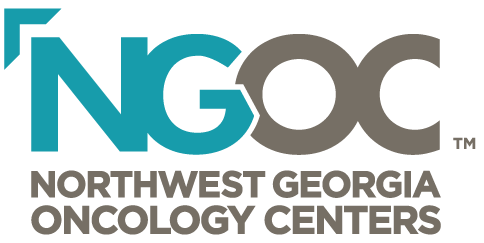Question About Cancer Care
Some Answers to Questions that Matter.
Cancer begins in the cells which are the basic building blocks that make up tissue. Tissue is found through out the body. Sometimes, the process of cell growth goes wrong and new cells form when they are not needed and other old or damaged cells do not die as they should. This build up of cells many times forms a mass of tissue called a growth or tumor or can circulate through tissues via blood and blood-forming organs.
Most people with cancer will have only one primary treatment for their cancer. But usually, there is a combination of treatments. The types of treatment will depend on the type of cancer you have and how advanced it is. It is normal to feel overwhelmed and confused. But, talking with your doctor and learning all you can about all the options, including clinical trials, can help you make a good decision.
A series of cycles of treatment is called a course. A treatment course often takes between 3 to 6 months but it can be more or less than that. During that time, you would probably have between 4 to 8 cycles of treatment.
Some doctors use the term “cured” when referring to cancer that doesn’t come back within 5 years. But cancer can still come back, so it’s never truly cured. There is no true cure for any cancer. But new advances are helping move us closer than ever to a true cure.
Please keep in mind every patient's cancer situation is different and there are many questions and answers you will need to ask your doctor concerning your cancer diagnosis and treatment. Talk with your NGOC physician to best understand what’s going on with your cancer care.
Appointment Questions
Our cancer doctors will thoroughly discuss your evaluation, treatment, and possible side effects and are happy to address any other questions or concerns you may have about your care. An effective way to ensure all your needs are met and your questions answered during an appointment or treatment is to make a list of questions or keep a care journal. Being prepared helps you talk more effectively with your doctor or nurse and helps us provide better care. Bring the list or journal with you to each appointment or treatment to take notes.
Questions to review with your cancer care team:
• Do you typically treat patients with my diagnosis at NGOC?
• What stage is my cancer?
• Is there anything about my unique about my cancer prognosis?
• Should I get a second opinion?
• What is the goal of my treatment?
• Can you cure my cancer or stop it from growing?
• What are my treatment options?
• How can each treatment option help me achieve my goal of therapy?
• What risks or potential side effects are associated with each treatment?
• What research studies (“clinical trials”) are available at NGOC?
• Are there any clinical trials that are right for me?
• How long will I receive treatment, how often, and where?
• How will it be given?
• How will I know if the treatment is working?
• How might a disruption in my chemotherapy dose or timing affect my results?
• How and when will I be able to tell whether the treatment is working?
• What are the names of all the drugs I will be taking?
• Can I talk with another of your patients who has received this type of treatment?
• Are there any resources or websites you recommend for more information?
• What types of lab tests will I need?
• Will I need x-rays and scans?
• Can you explain the results of my complete blood count (CBC)?
• Are there tests for the genetic make-up of my cancer?
• Will I benefit from having my cancer evaluated for its genetic make-up?
• How frequently will I get the tests?
• What are the possible side effects?
• When can I expect any side effects to start?
• Will they get better or worse as my treatment goes along?
• How can I prepare for them or lessen their impact?
• Are there treatments that can help relieve the side effects? What are they? Do you usually recommend or prescribe them?
• Which risks are most serious?
• Will I require blood transfusions and why?
• How can I best monitor myself for complications related to either my disease or my treatment?
• Will my type of chemotherapy put me at risk for a low white blood cell count and infection?
• Can I help protect myself against infection right from the start of chemotherapy, instead of waiting until problems develop?
• Am I at special risk for infection?
• What are the signs of infection?
• How serious is an infection?
• How long will I be at risk for infection?
• What should I do if I have a fever?
• How are infections treated?
• How will my cancer treatment affect my usual activities?
• Will I be able to work?
• Will I need to stay in the hospital?
• Will I need someone to help me at home?
• Will I need help taking care of my kids?
• Are there any activities I should avoid during my chemotherapy?
• What happens after I complete my treatment?
• How can I best continue to monitor myself for complications related to either my disease or my treatment?
• What kind of lab tests will I need?
• How frequently should I get those lab tests?
• What types of x-rays and scans will I need?
• How often do I need to come in for checkups?
• When will you know if I am cured?
• What happens if my disease comes back?

